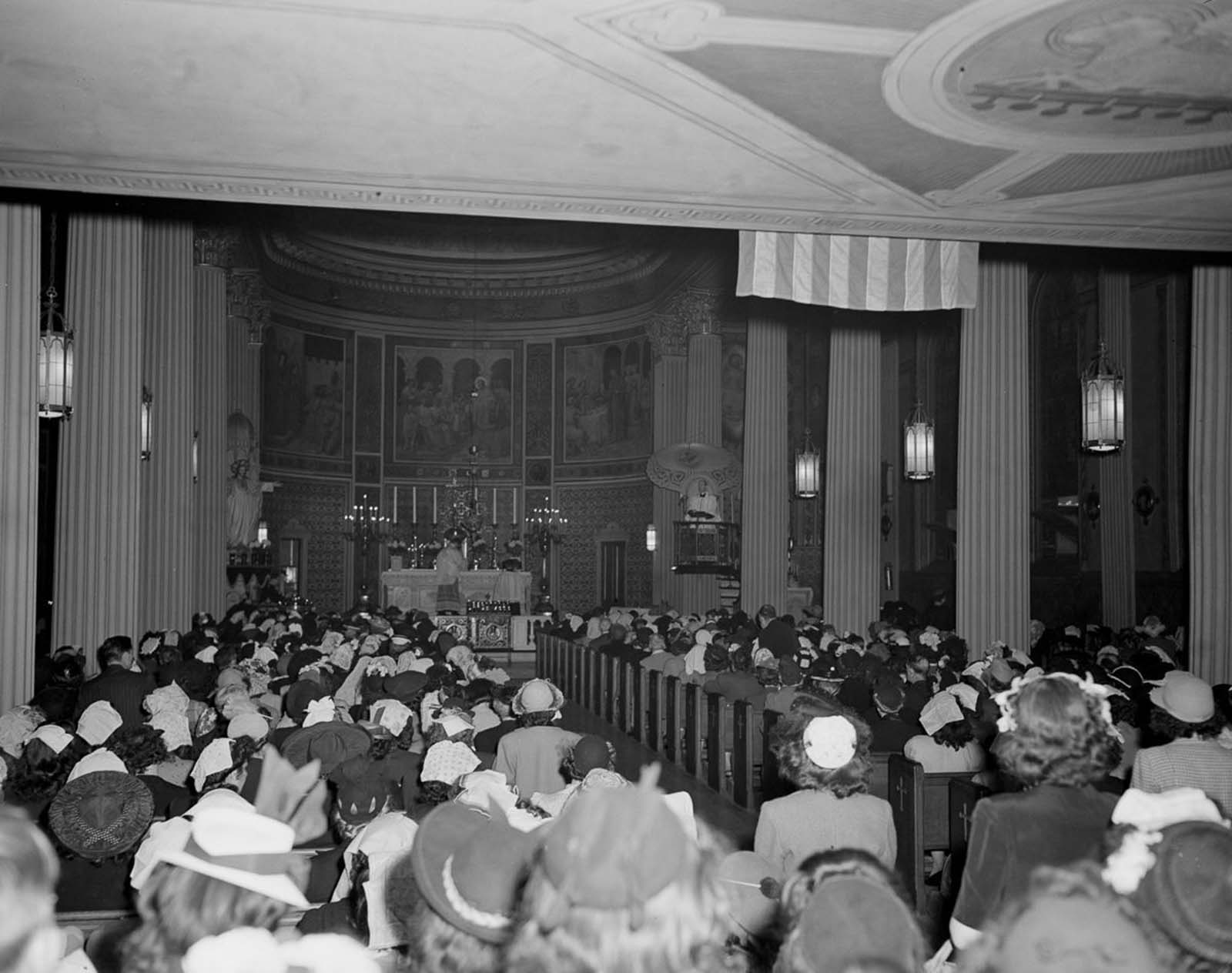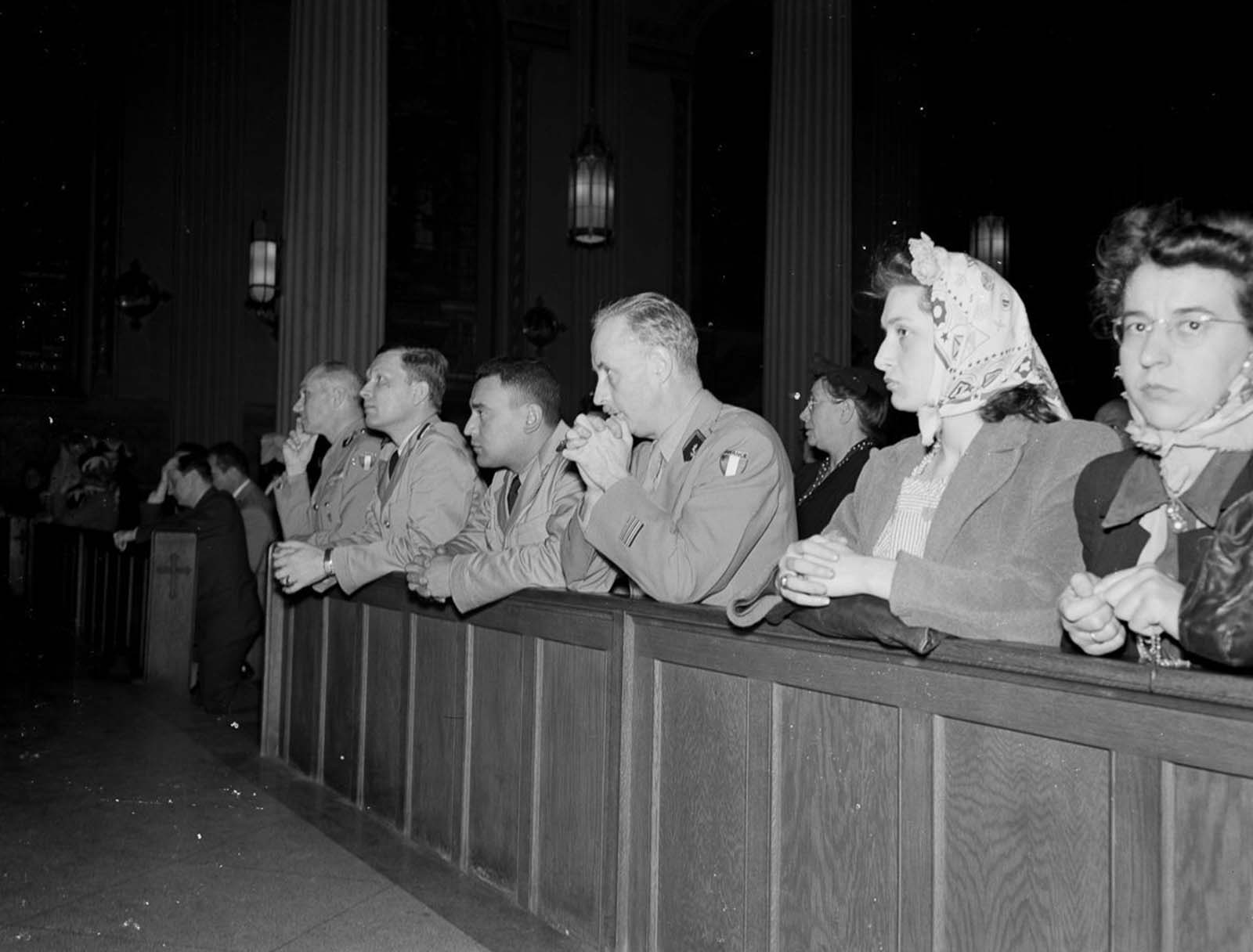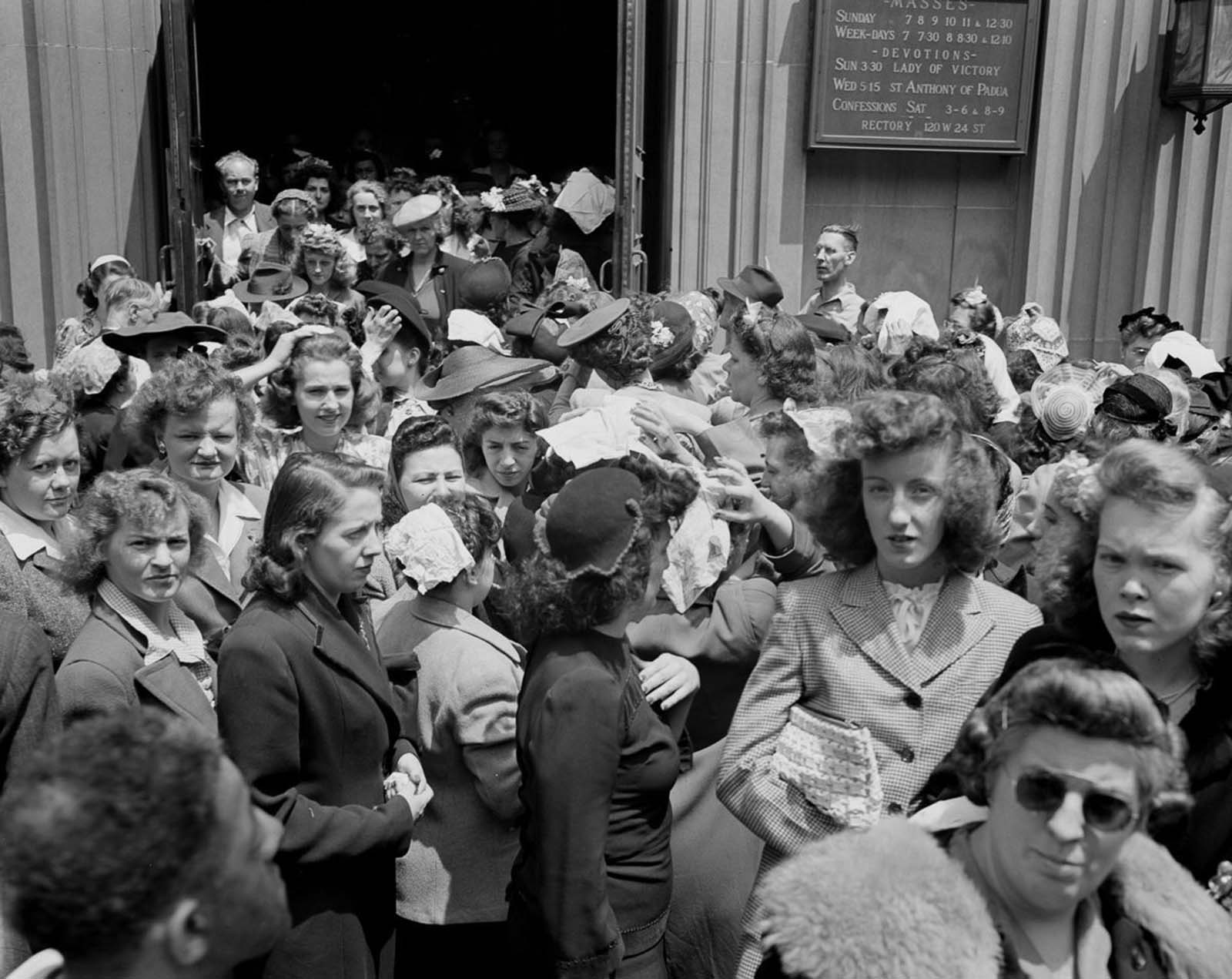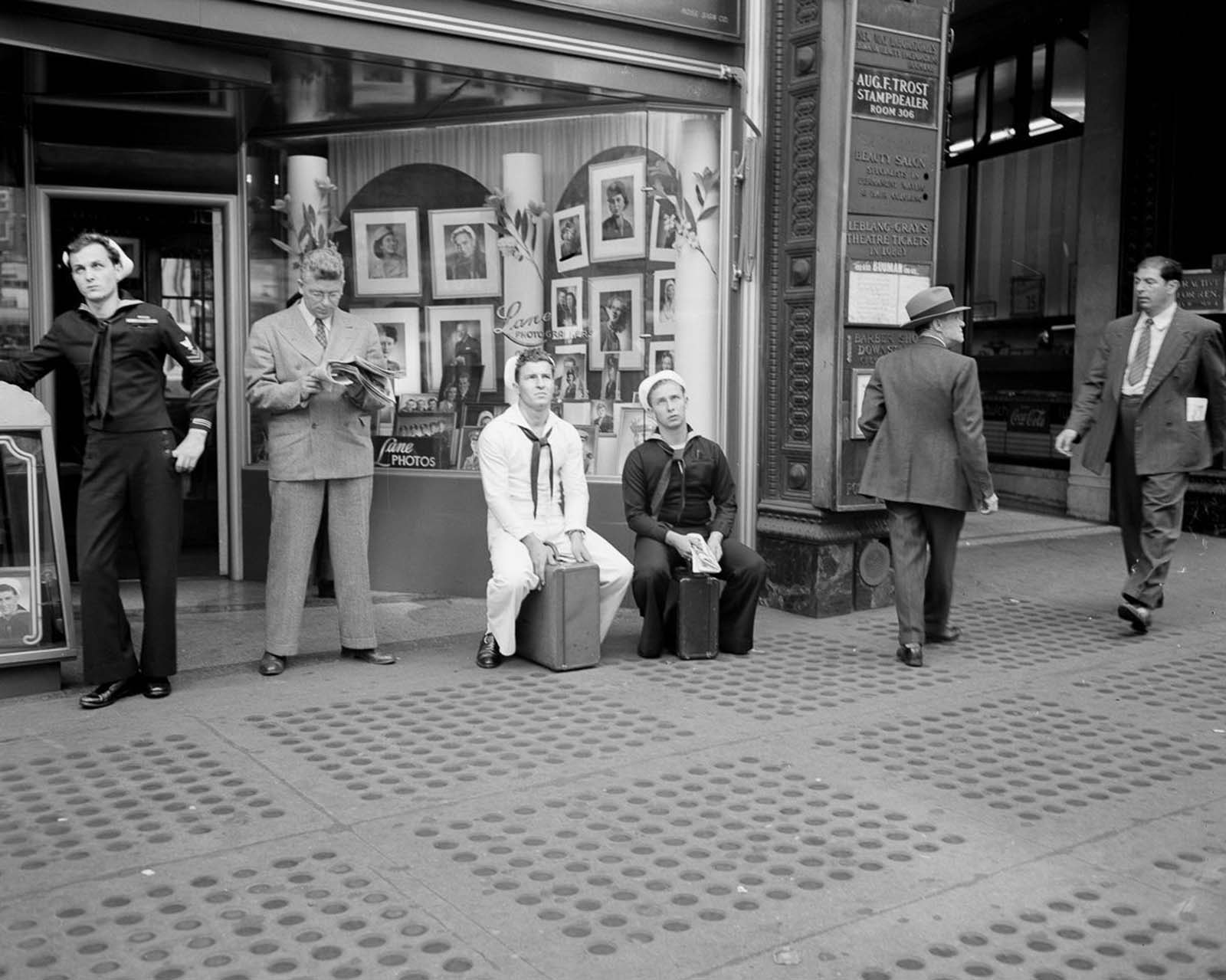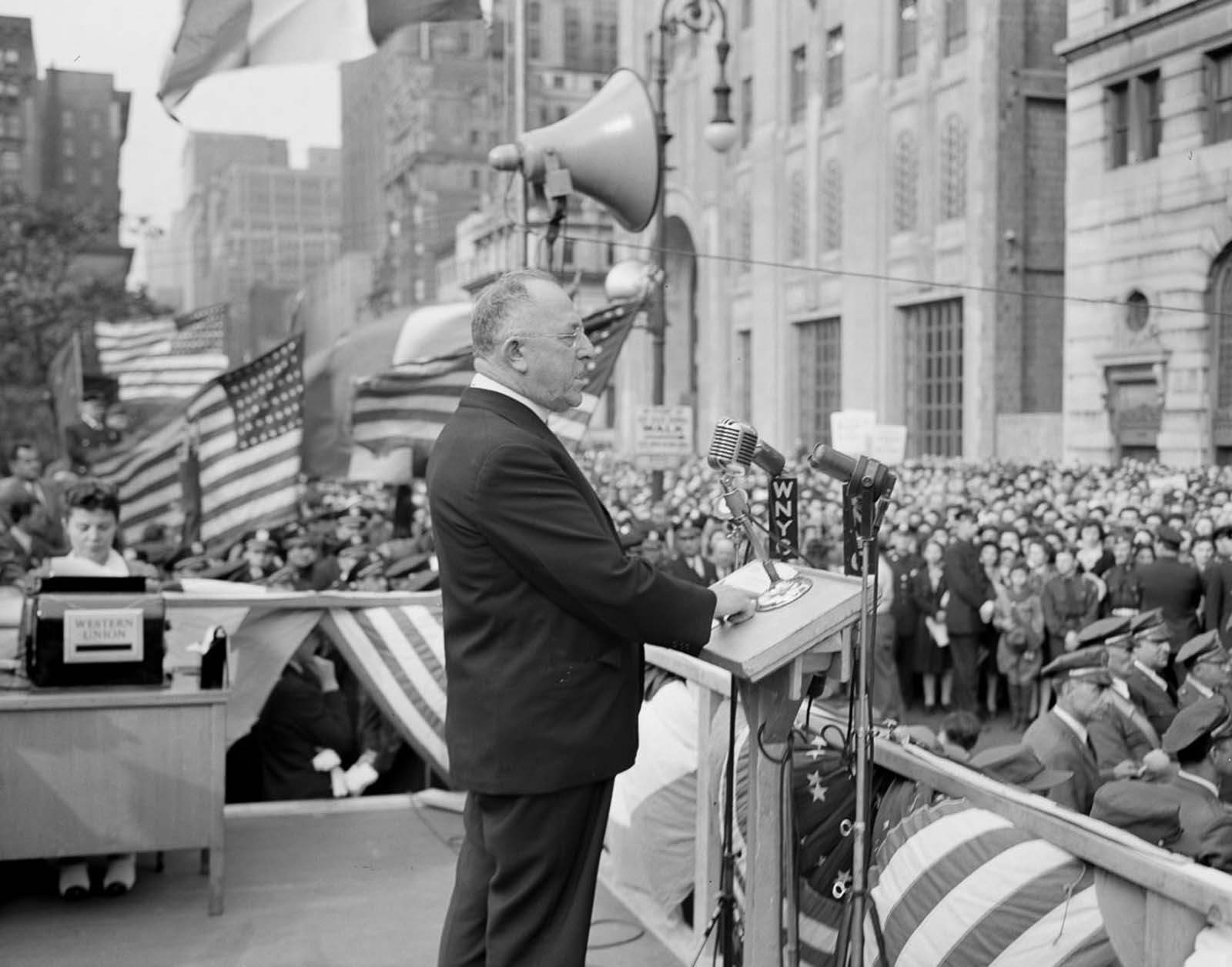Working under the command of General Eisenhower, an armada of 5,000 ships brought troops to the beaches of Normandy, one of the largest in military history. Almost 150,000 troops stormed the beaches of Normandy on that summer day, and approximately 20,000 of those by parachute. News of the invasion spread quickly that early morning in the streets of New York City. New Yorkers had their ears and eyes glued to radio stations and newspapers. The Daily News proclaimed in bold lettering: “INVASION BEGINS”. New York Times editors rushed to put out a special 6 a.m. edition, with a front page headline announcing the “Great Invasion is Under Way.” The news carried the first terse communique from the Supreme Headquarters of the Allied Expeditionary Force: Under the command of General Eisenhower, Allied naval forces, supported by strong air forces, began landing Allied armies this morning on the northern coast of France. President Roosevelt addressed the American public directly for the first time that evening, during his radio address. The address itself was conceived as a prayer, with Roosevelt asking God to bless the American war effort. He also called on the American people to continue their prayers into the coming days. In churches and synagogues across Manhattan, people bowed their heads in prayer, while in Times Square, crowds craned their necks to watch the latest reports creep across the electronic ticker on the New York Times building. The New York Stock Exchange observed two minutes of silence and in Madison Square, WNYC held a D-Day rally, featuring speeches and songs presided over by the city’s mayor Fiorello La Guardia. Like Roosevelt, La Guardia led the city in a prayer, telling those gathered—and those listening at home on their radios: “We, the people of the City of New York, in meeting assembled, send forth our prayers to the Almighty God for the safety and spiritual welfare of every one of you and humbly petition Him to bring total victory to your arms in the great and valiant struggle for the liberation of the world from tyranny”. New information was difficult for American media outlets to obtain; CBS World News’ radio program from the day makes multiple references to German media broadcasts, which were the main source of updated information. Not only did the invasion of Normandy change the course of the war, but it changed the course of history. The operation would ultimately break the Nazi’s grip on Western Europe. (Photo credit: Library of Congress / Smithsonian). Notify me of new posts by email.
Δ Subscribe





